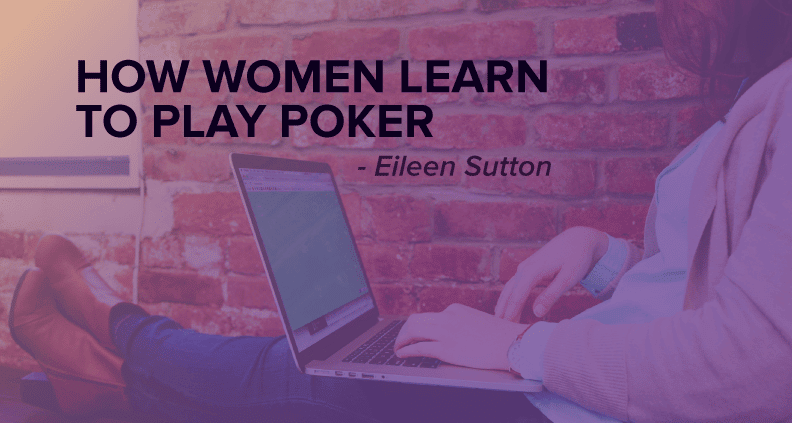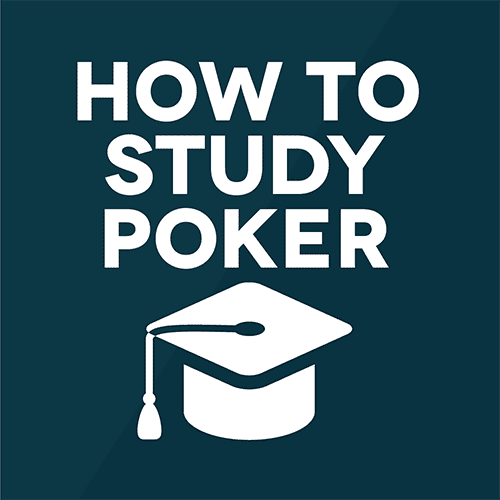We’re living the age of “aggro” and poker’s harder. We study constantly. We have unlimited training materials and the caliber of player has surely risen. Yet women still struggle for agency in a mostly male sport and hold modest numbers. They engage cautiously. And for older women, say, coming to the game in their 40s and 50s, trying to “catch up” with 20-somethings who’ve been grinding cash since their teens can be daunting. How do you get smarter about your play? As part of a smaller female player pool, where do your find support? How do you start?

Be Where You Are
The good news? You’re only competing against yourself. Despite the skill of other players at your table, and how that impacts your decisions, you don’t need to “catch up” with anyone. Misty Copeland, principal dancer for the American Ballet Theater, didn’t start training until she was 13, late for a ballerina. But she trained on her terms and never looked back. Poker’s intense creativity means you spend an hour learning the basics. And a lifetime in the trenches. There’s no ruler by which your skill is ever measured. Ironically, even some pros have skill sets the value of which other players challenge. In the end, be patient with your process and trust your own learning style as you integrate a very complex game.
Set Healthy Boundaries
Mostly male live cash games have unique social dynamics. Banter runs high, booze is often a factor, and huge dollars on the table means lots of intensity. Especially at lower stakes, players crave advantage. They don’t mind giving away information and often dissect hands. Men in general like to feel smart and in charge. They like to give advice. Not less in a poker context. But if you’re a woman finding your way on the felt, you know best how to play. You know best where you are on the learning curve and whose opinions you trust. Feel entitled to push back unwanted advice in a way that’s comfortable for you. If it gets aggressive you can call the floor. You alone are in charge of your poker education and you alone set the terms.
How to Study
I’ve met a lot of women who learned a bit of Hold ‘Em on TV, were curious about the game, and played casually in micro-stakes home games. They were keenly aware of what they didn’t yet know, but had no idea how to close the education gap, become better players, and move up in stakes. Knowledge boasting in live cash is a real social pressure, while less skilled players leverage aggression with no underpinning of real strategy. For some women, it’s hard to play tighter and be at peace with a quieter style when copycat betting habits become the norm. I’ve seen women criticize their own skill in the middle of a hand. I’ve seen them tilt wildly to great financial loss in super-aggro games.
Today’s training resources are powerful and ubiquitous but can feel overwhelming. Between books and videos and poker podcasts and blogs and articles and magazines and player interviews and live game commentary, where’s the entry point?
Learning poker involves tremendous trial and error. Talk to 10 players and you’ll get 11 opinions about what to read and how to learn. For starters, talk to other players, both women and men, players you respect who take you seriously. In the end, you will find the teachers and resources just right for you. You may read at a book at the beginning of your training that two years later you realize wasn’t the best starting point. Let that go. You’ll discard older sources and find materials best suited to your intellectual needs as skills deepen. It’s natural.
This video shows you one of the best ways to study poker & improve quicker
Coaching is always a good idea if you can afford it. But if you’re training on your own, put structure around your process. Many good articles have been written about how to best integrate what you read and absorb. You can also devise a study plan that you map out months in advance. Start by devoting a certain number of hours weekly to your poker education. Pick which topics you’ll concentrate on relative to leaks and where you feel weak. Keep a hand diary and discuss your lines off the felt.
All of this combined becomes a learning strategy. These steps organize your focus so you’re more efficient, and you avoid scattering time and attention. If you’re not trained as a “math-based player,” and playing mostly live, for instance, chances are you’ll spend less time on game theory or preflop all-in strategies, more appropriate to tournament play. Just like choosing appropriate table stakes, choose wisely how, when, and what you study.
Help Girls Play
Mentorship never goes out of style. I routinely offer to help women learn the game. It helps me hone my skill, plus I love to make the game more inviting for female players. When you talk to other women, you’re creating community off the felt in a way that can feel safe for you and for them. I’ve met a lot of women who were curious about the game but ultimately felt too intimidated to dive in. Remember your own history and how you felt at the start. The first time you played live. The thrill of wagering real money and buying in for the first time.
If it’s right for you, be an ambassador. Even if you’re not years in the game, you always have something to share. Your experience has value. And your confidence will be infectious. Women in live play are still a tiny fraction of our male counterparts. When we help our female comrades step up, the game on every level is richer.

